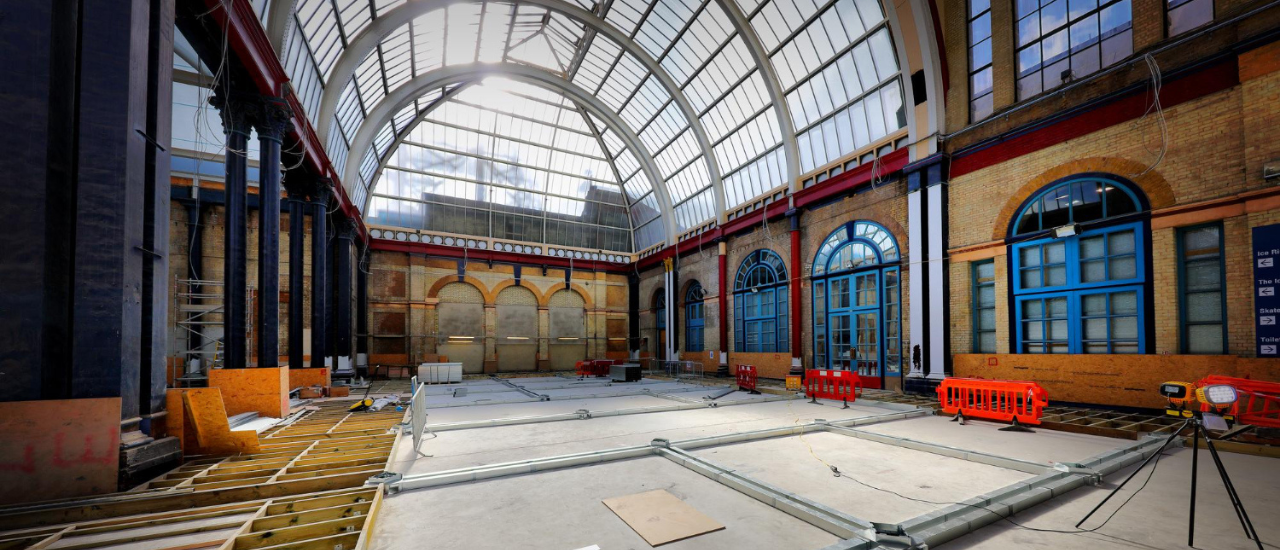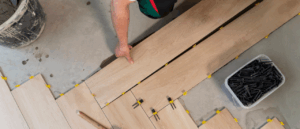Industrial remodeling is a significant measure to develop operational efficiency while ensuring worker security and improving operational output. The old buildings need to maintain the strict municipality standards in Chicago, which makes each minor construction error potentially expensive during all weather conditions. L&M Decorating works with manufacturers, warehouse owners, and facility managers all over Chicago. We are aware that certain mistakes consistently result in financial overruns, lengthened/delayed projects, and compliance difficulties. If you’re considering an industrial remodeling project in Chicago, here’s what to look out for and how to get it right from the start.
Ignoring Chicago Building Codes and Permit Requirements
Industrial renovation projects face numerous challenges if owners and contractors ignore local building codes or postpone submitting applications for permits. The municipal laws in Chicago enforce different requirements according to zoning areas, different facilities, or depending on the neighbourhood. Failure to submit the required permits can affect your renovation process, which can cause problems with electrical systems, plumbing, HVAC, or structural components.
To prevent these problems from happening, you should ensure proper code compliance starting from the first day of the project. Contact Industrial Renovation Solutions Chicago, who have the required expertise in handling the city’s permitting framework. Industrial contractors Chicago can help your business complete municipal requirements while obtaining inspections and verifying compliance with city standards. Do give proper attention to details, especially in the beginning, to avoid having to deal with unnecessary delays in the future months.
The Structural Issues
The second mistake most people make is failing to properly evaluate the structural problems in the older facility buildings. Chicago has numerous old industrial buildings spread throughout different areas, especially in Pilsen, the West Loop, and the South Side area of the city. The Substring properties in desirable locations tend to carry hidden structural problems, including badly damaged foundations, corroded steel frames, and malfunctioning utilities. The absence of clear insight into such issues before starting the renovation work can incur high costs in the construction phase and after.
Projects should begin by conducting thorough structural and mechanical inspections. This should be done before demolition work starts to address the unknown issues. An early assessment at this stage lets you detect possible difficulties so you can construct feasible spending plans and work schedules. Communicate with engineering and Industrial Renovation Solutions Chicago, which specializes in handling old infrastructure structures. Proper planning ensures financial control for your project.
Choosing the Wrong Contractor for Industrial Work
Selecting a contractor who lacks competency in industrial work creates a third major issue in industrial remodeling. Each contractor has a different degree of competence. Experienced contractors work with residential and commercial buildings, they sometimes lack enough technical expertise for industrial-scale facilities. The result of selecting the wrong contractors leads to a lack of proper optimization, which causes wastage of human resources, safety breaches, and operational coordination failures. Thereby, generating operational downtime and additional costs.
Your solution? Only companies specialized in industrial remodeling in Chicago should handle your industrial facility projects. Inquiries regarding past projects, along with knowledge of compliance requirements and their protocols for active job sites, must be kept in mind when signing off with a contractor. An excellent contractor uses adaptive designs that focus on operational excellence with added safety features and increased capacity for growth.
Energy Efficiency and Long-Term Savings
Businesses that do not consider energy conservation and long-term cost savings make this another huge mistake while renovating. It’s simple to get caught up in repairing the visible problems during a renovation, but most businesses overlook the opportunity to lower future operating expenses. Industrial facilities that depend on antiquated lighting, HVAC systems, or insulation can drain energy and your money every month.
Industrial renovation should prioritize achieving maximum efficiency throughout the whole process. Add an LED lighting system and smart thermostats while also optimizing insulation levels. It is essential to participate in local incentive programs like those run by ComEd, which provide financial benefits for these renovation improvements. Chicago businesses that implement energy-efficient renovation solutions in their facilities can achieve financial savings and reduced environmental impact.
Failing to Consider Day-to-Day Operations
Avoiding proper planning for normal business operations comes under a list of common renovation mistakes. Business owners normally fail to recognize how their renovation projects will interrupt regular facility operations. Industrial facilities can experience swift disruptions in their processes, which negatively affect production outputs and delivery procedures. Renovations that lack phased planning and communication systems will either slow down operations needlessly or create potential security risks.
Create a comprehensive project plan that incorporates operational activities in order to avoid these kinds of renovation problems. The renovation plan should have multiple stages along with defined work areas and essential construction tasks that take place during low-demand times or downtime. A skilled contractor can work with your personnel to manage the construction timeline in order to sustain daily operations without interruptions.
Renovating During Harsh Chicago Weather Without Planning
Doing renovations during Chicago’s severe winter months without appropriate scheduling plans proves to be a serious disadvantage. External renovation projects and temperature-sensitive construction materials can sustain damage and encounter delays if you do not take proper weather considerations. Beginning significant projects during the cold winter months may lead to substantial monetary losses.
Consider the seasonal changes before determining your project timeline. Renovations that affect the exterior walls must take place during spring or early fall. This period offers more stable weather than winter months. Working on your property in winter needs contractors who specialize in cold weather construction to implement proper contingency measures before starting.
Pertaining to only current needs
Maintaining space for accommodating present needs instead of future requirements leads to the failure of your industrial projects. Making rushed decisions and calculations during renovation sessions will lead to a major setback. Upgrading spaces when businesses need immediate changes fails to secure planning for predicted organizational development like operational expansion or equipment addition and stock storage enhancements.
Designing with flexibility is a core component that prevents this situation. Create enough free space for expansion and select components that can grow or sustain long-term, enhance utilities and infrastructure base systems for future-proofing purposes. The expertise of Commercial Remodeling Services Chicago creates value for both present operations and future company development in the next five to ten years.
Final Words
The right approach to industrial renovations in Chicago generates enhanced productivity and safety, with increased market value of the property. Working with appropriate experts and avoiding the common mistakes will allow your project to stay within financial targets, timeline requirements, and also achieve target objectives.
We also provide bathroom remodeling services, so if you’re planning for residential bathroom remodeling Chicago, we’re here to help you do it the right way. Let’s talk about what’s possible for your space. You can reach us at (312) 687-8707.




